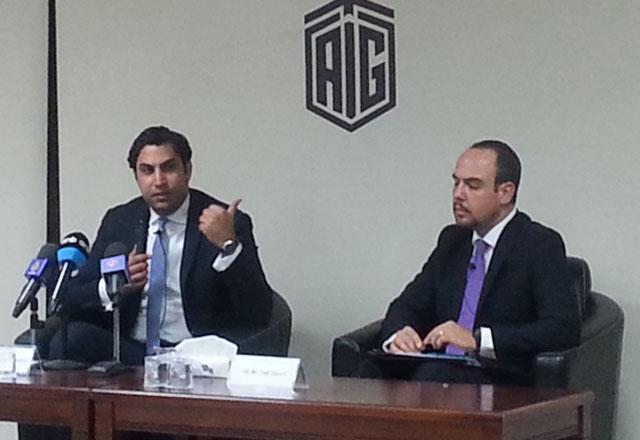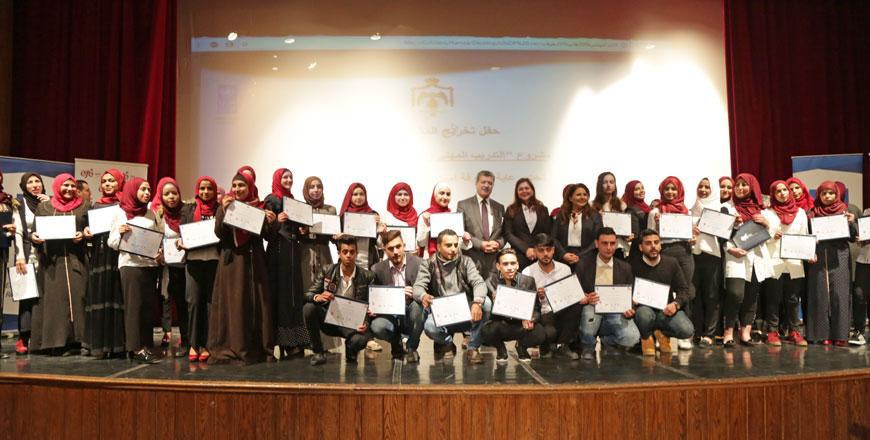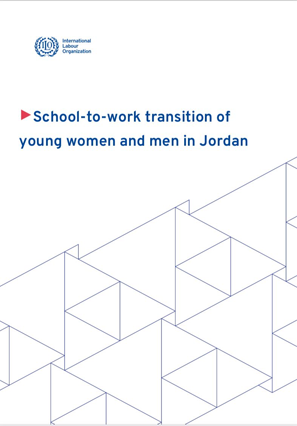You are here
UN youth envoy highlights challenges facing young people
By Dana Al Emam - Apr 07,2014 - Last updated at Apr 07,2014

AMMAN — The world has to provide 600 million job opportunities in the next 15 years to meet the demands of young people, UN Secretary General’s Youth Envoy Ahmad Hindawi said on Sunday.
“Young people have to create their own small-sized enterprises, because even the partnership between the public and private sectors may not fulfil this high demand on jobs,” Hindawi said, urging the government to facilitate legal procedures and funding for young entrepreneurs, in addition to providing adequate training.
In a discussion on the reality, future and ambition of youth at the Talal Abu-Ghazaleh Knowledge Forum, he noted that the definition of the word “youth” differs from one country to another, but “the UN defines youth for statistical purposes as individuals aged between 15 and 24 years”.
The UN envoy noted that young people face a number of challenges in education, finding jobs, starting families, and in civil and political engagement.
“Jordan and the Arab region achieved high percentages in the quantity of education,” he said, adding that the quality of education should also be taken into consideration.
Hindawi noted that in 2012, more than 97.7 per cent of children aged between six and 15 in the Kingdom were enrolled in school, despite “high illiteracy rates” in the region.
The mismatch between the outcomes of education and the needs of the job market is inevitable worldwide, he said at the discussion, organised by the Economic Policy Development Forum.
“There is no way that a university certificate can fully guarantee finding a job… because job markets always change faster than the development of educational institutions.”
“Higher rates of unemployment are found among holders of higher education degrees,” which is “a dangerous sign” of the previously mentioned mismatch and the absence of strategic planning for education, he pointed out.
The rates of female involvement in higher education institutions are higher than those for males; however, unemployment is higher among females, he told the audience.
Citing International Labour Organisation figures, Hindawi noted that 75 million individuals worldwide are unemployed and do not have education or training opportunities.
He highlighted the common mistake of targeting the 15 to 24 age bracket when measuring unemployment since working at the age of 15 is “illegal in most countries”.
Hindawi warned against what he called the “poverty trap”.
“An individual who is born into poverty is more likely to receive poor education and poor job opportunities,” he said, noting that youths usually cannot breakaway from this trap.
Young people, who constitute around 70 per cent of the region’s population, also face economic difficulties in their attempts to establish families, he said.
“According to a report by the Dubai School of Government, marriage expenses in a country like Egypt equal the salary of a young Egyptian for 27 months.”
Hindawi also noted that young people’s “low” civic and political engagement is a message they send to indicate that they are not convinced of the meaning and effect of their participation.
He urged governments, especially in this region, to adopt the culture of investing in young people rather than supporting them, and to adopt the UN’s aim of working with youth, not for them.
Related Articles
AMMAN — “The government is in dire need of reviewing the economic and social policies that have led to the decrease in employment opportunit
AMMAN — A total of 6,000 young jobseekers will receive specialised training in skills matching labour market needs through USAID’s new “Trai
AMMAN — The Kingdom’s young population has been “disproportionately” impacted by the Jordanian economy’s failure to create job opportu

















